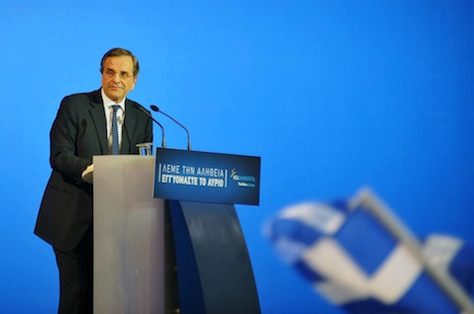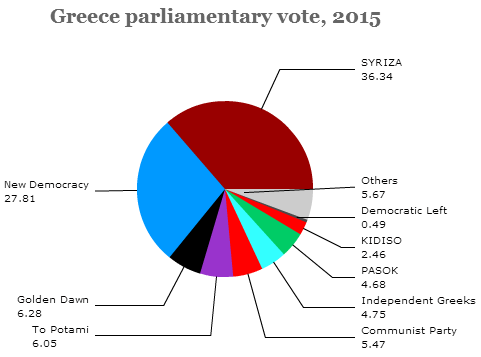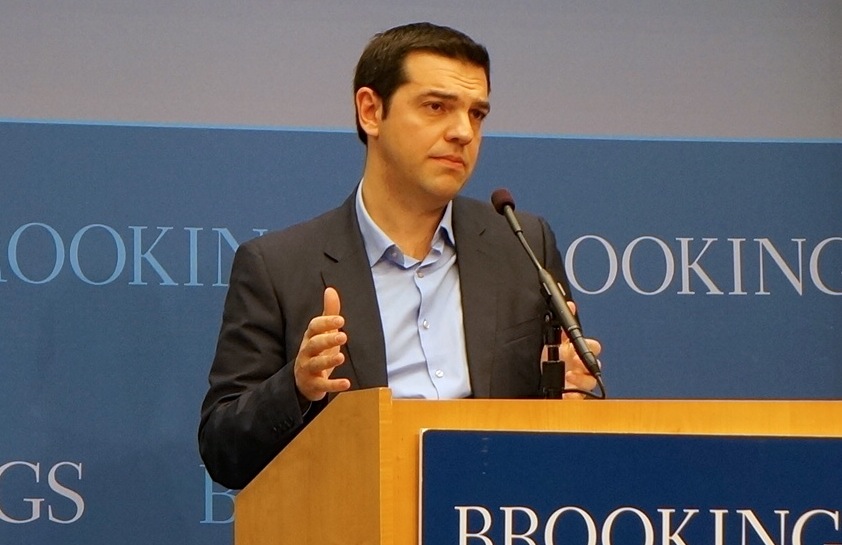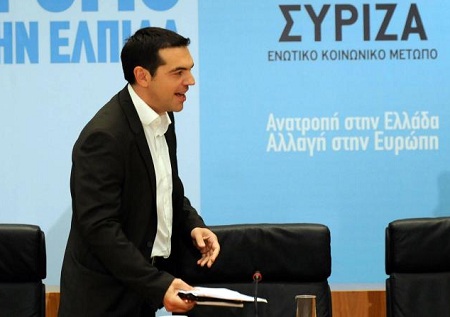Greece’s voters have effected a political earthquake in making leftist Alexis Tspiras their new prime minister, delivering a near-majority to the far-left and giving the European Union its first full-throated anti-austerity government since the onset of the eurozone’s sovereign debt crisis in 2009-10.![]()
Tsipras’s party, SYRIZA (the Coalition of the Radical Left — Συνασπισμός Ριζοσπαστικής Αριστεράς), is now the most left-wing governing party in the European Union and, with the exception of economist Yiannis Dragasakis, who served as deputy finance minister in a short-lived technocratic government a quarter-century ago, it’s a party with no significant governing experience.
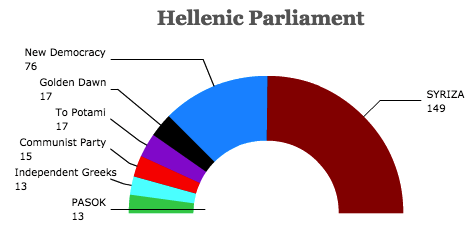 Despite a 50-seat ‘winner’s bonus’ for SYRIZA, which significantly outpolled New Democracy, the party fell just short of an outright majority in Greece’s unicameral Hellenic Parliament (Βουλή των Ελλήνων). Earlier, today, however, Tsipras announced that he would form an alliance with the Independent Greeks (ANEL, Ανεξάρτητοι Έλληνες), an anti-austerity spinoff from New Democracy. Its leader, Panos Kammenos, last week scoffed that Europe is governed by ‘neo-Nazi Germans,’ and he is something of a loose cannon on the Greek political scene, and he has sometimes veered toward nationalist and even anti-Semitic rhetoric. Like Tsipras, he has brutally denounced the conditions of Greece’s two bailouts over the past half-decade, but he agrees on little else with the country’s new leftist prime minister.
Despite a 50-seat ‘winner’s bonus’ for SYRIZA, which significantly outpolled New Democracy, the party fell just short of an outright majority in Greece’s unicameral Hellenic Parliament (Βουλή των Ελλήνων). Earlier, today, however, Tsipras announced that he would form an alliance with the Independent Greeks (ANEL, Ανεξάρτητοι Έλληνες), an anti-austerity spinoff from New Democracy. Its leader, Panos Kammenos, last week scoffed that Europe is governed by ‘neo-Nazi Germans,’ and he is something of a loose cannon on the Greek political scene, and he has sometimes veered toward nationalist and even anti-Semitic rhetoric. Like Tsipras, he has brutally denounced the conditions of Greece’s two bailouts over the past half-decade, but he agrees on little else with the country’s new leftist prime minister.
* * * * *
RELATED: EU should give Tsipras a chance to govern
RELATED: Meet Greece’s new economic policymakers
* * * * *
So what should you make of the fast-moving events in Greece and the aftermath of Sunday’s elections? Here are seven key lessons.
Continue reading Seven lessons from the Greek election results
